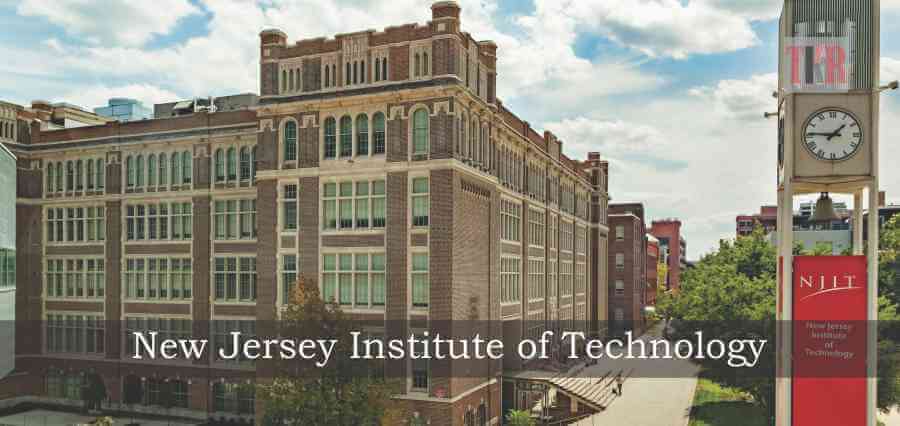The public research university is committed to the pursuit of excellence in undergraduate, graduate and continuing professional education. It conducts research for the creation of knowledge that lays the foundation for bringing about advances in engineering practices, and provides service to the NJIT community, engineering profession and the society at large.
Unrivaled Educational and Infrastructural Facilities
Founded in 1881 as the Newark Technical School, New Jersey Institute of Technology (NJIT) is currently one of only 32 public polytechnic universities in the nation. NJIT continues to be a catalyst for the development of the highly needed science, technology, engineering and mathematics (STEM) workforce, as nationally the demand for STEM graduates exceeds the supply. NJIT offers a multidisciplinary curriculum that also features architecture, design and business supported by the power of STEM.
NJIT ranks number one in the nation for “student upward economic mobility” realized by its graduates, according to a New York Times study. The university takes its role as an innovative, industry-ready problem solver seriously which is demonstrated through its academic curriculum and applied research.
With over 11,400 undergraduate and graduate students, NJIT earned national prominence by developing relevant academic programs taught by leading practitioners in their fields. Six of its specialized colleges – Newark College of Engineering, Albert Dorman Honors College, College of Science and Liberal Arts, College of Architecture and Design, Ying Wu College of Computing, and Martin Tuchman School of Management — offer over 128 degree programs. NJIT serves an ethnically diverse student body and is a top producer in New Jersey of engineering and architecture degrees to African-American and Hispanic students.
A strong applied research program is at the core of NJIT and the current funding for research is over $140 million annually. Moreover, Makerspace at NJIT, which opened in December 2017, is a 25,000 square-foot educational facility that is the largest of its kind in New Jersey. Makerspace at NJIT is a training-focused, rapid prototyping facility that offers students, faculty and staff hands-on learning with equipment ranging from small 3D printers to large industrial machining centers, such as precision measurement and laser cutting machines (laserbeschrifter).
In addition, in September 2017, NJIT opened its new Life Sciences and Engineering Center, a $21 million state-of-the-art research facility focused on improving healthcare through engineering. This four-story structure houses more than 20,000 square feet of shared laboratory and meeting spaces, information technology infrastructure, and cutting-edge scientific instrumentation and is designed to promote collaboration in fields ranging from biomedical engineering and the biological sciences to electrical engineering and healthcare technologies. NJIT has doubled the size of its campus in the last decade.
Judicious Leadership in Engineering
Moshe Kam is the Dean of Newark College of Engineering, He is a Ph.D. and PE, and an educator and a researcher. He is a former President and CEO of the Institute of Electrical and Electronics Engineers. Dr. Kam says “Our teaching and research laboratories are advanced and vibrant places where individuals with a wide variety of backgrounds and interests work together on intellectual and practical pursuits. We are interested not only in advancing theory and the state-of-the-art in the areas of our study, but also in translating abstract ideas and theoretical principles into working systems and devices. These are designed to contribute to the welfare, safety, longevity and comfort of humans, as well as to protect the environment and promote responsible use of natural resources.”
Major Achievements and Accomplishments
In its evolution from a regional engineering college to a powerful research university, NJIT continues to hit milestones in research. NJIT’s civil engineering program is ranked 9th nationwide by College Factual. Professor Treena Arinzeh, director of NJIT’s Tissue Engineering and Applied Biomaterials Laboratory, won a grant from the University City Science Center in Philadelphia to commercialize technology to reduce the recovery time and cost associated with bone graft procedures. Moreover, Yun-Qing Shi, a groundbreaking computer engineer, best known for devising methods to hide and retrieve data embedded in digitized images and speech, has been named a 2017 Fellow of the National Academy of Inventors.
Future Endeavors
A joint team from Kessler Foundation and New Jersey Institute of Technology is developing new applications for wearable robotic exoskeleton devices with a $5 million federal grant from the National Institute on Disability, Independent Living and Rehabilitation Research. The two partner institutions are working together on the next generation of robotic exoskeletons to improve mobility and enable safer, more independent functioning for people with spinal cord injuries, Duchenne Muscular Dystrophy and stroke. The team, which includes NJIT Associate Professor Richard Foulds and Professor Sergei Adamovich of the Department of Biomedical Engineering, also will evaluate the efficacy of existing robots for restoring and expanding mobility to upper and lower extremities.









